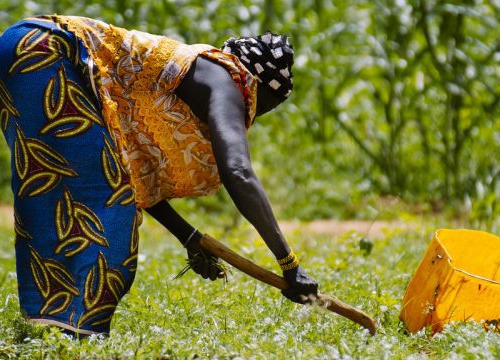New Publication Outlines Steps towards the Implementation of the UN Declaration on the Rights of Peasants


CIFOR
5 March 2019
The adoption of the United Nations (UN) Declaration on the rights of peasants and other people working in rural areas (UNDROP) is the outcome of more than ten years of work by social movements, civil society organizations, states, experts, and academic institutions like the Geneva Academy. It represents a major step towards better protection of the rights of peasants and other people working in rural areas worldwide, a group that represents 70 percent of people living in extreme poverty and 80 percent of the world’s hungry.
‘The adoption of the UN Declaration was just a first step and it is now crucial to ensure that the rights enshrined in this important instrument will be fully implemented. We had the privilege to accompany the negotiation process for so many years, and we will now be engaged with all actors who shall take steps to put the UN Declaration into practice’ stresses Dr Christophe Golay, Special Adviser on Economic, Social and Cultural Rights at the Geneva Academy and author of the Research Brief.
Roles and Responsibilities of Various Stakeholders
Our new Research Brief The Implementation of the UN Declaration on the Rights of Peasants and Other People Working in Rural Areas discusses the roles and responsibilities of governments, parliaments, domestic courts, National Human Rights Institutions, UN specialized agencies, funds and programmes, the UN Human Rights Council (HRC), regional organizations and human rights mechanisms, the UN Economic and Social Council (ECOSOC), and the Committee on World Food Security in implementing the UNDROP. It also stresses that the UNDROP should be mainstreamed into the strategies aimed at achieving the Sustainable Development Goals (SDGs).
‘Lessons learned from the implementation of the UN Declaration on the rights of indigenous peoples show that all branches of the state, including the executive, legislative and judiciary must be involved and that new monitoring mechanisms must be established at the international level’ explains Dr Golay.

Full and Meaningful Participation of Peasants
The UNDROP recognizes peasants’ right to participation in all decision-making processes that may affect their lives, lands and livelihoods, notably to reverse the structural discrimination faced by peasants and other people working in rural areas.
‘In the implementation of the UNDROP, states shall promote full and meaningful participation of peasants. But this is not enough. They shall also respect and support the establishment and growth of strong and independent organizations of peasants and other people working in rural areas’ explains Dr Golay.

New UN Human Rights Mechanisms
While many recommendations of the Research Brief are addressed to states, the publication also recommends the creation of new monitoring mechanisms, such as a new Special Procedure and a new Expert Mechanism of the UN Human Rights Council (HRC) on the rights of peasants and other people working in rural areas.
‘In another study to be published later in 2019, we will describe the specific role of existing monitoring mechanisms, including the Universal Periodic Review, UN special procedures and UN treaty bodies in monitoring the implementation of the UNDROP’ concludes Dr Golay.

Presentation at the HRC
This new publication will be presented at the 40th session of the HRC during a side event on 6 March on the implementation of the UN Declaration.











